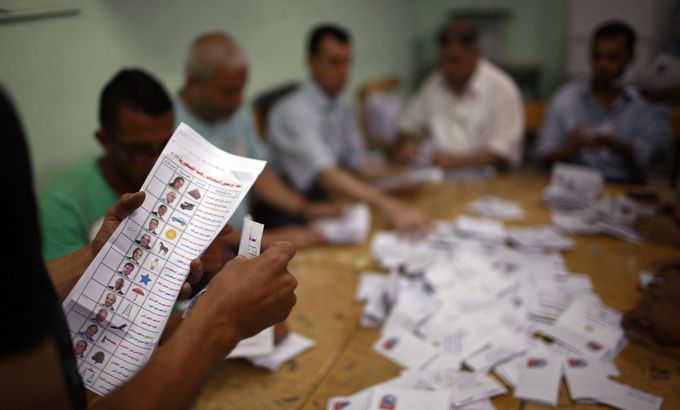Counting under way in Egypt presidential poll
Counting begins after two days of voting in Egypt’s first free presidential election, as Muslim Brotherhood claims lead.

Vote counting has started after polls closed at 9pm local time (19:00 GMT) on the second day of Egypt’s first free presidential election.
The Muslim Brotherhood said on its television channel that its candidate Mohamed Mursi was ahead, based on the tally from some districts.
The influential Islamist group, with its well-organised support base, had been expected to do well.
Other candidates claimed to be ahead in a handful of areas, but the overall picture will not be clear for some time.If no one wins more than half the votes needed for outright victory in the first round, the top two candidates will contest a June 16 and 17 run-off.
Turnout appeared to vary across the country on Thursday, with long queues outside some polling stations, and scant participation in others.
Mohammed Ibrahim, Egypt’s interior minister, said security forces had reported only “minor violations”.
Al Jazeera’s Sherine Tadros, reporting from the Cairo suburb of Heliopolis earlier in the day, said “voter turnout was nothing like it was on day one, we are not seeing long lines so far today.
“It is a national public holiday so I expect that throughout the course of the day when perhaps the sun goes down and it gets a bit cooler people will turn up.”
First day’s polling
Large queues formed at some polling stations on Wednesday, and some were packed late into the evening.
However, turnout so far has seemed lower than an earlier parliamentary vote when conservatives swept up most seats.
Voting passed off calmly for the most part, apart from a stone-throwing attack on candidate Ahmed Shafiq, who was Mubarak’s last prime minister.
The race broadly pits religious conservative candidates against secular ones like Shafiq and Amr Moussa, the former Arab League chief who previously served as Mubarak’s foreign minister.
Thirteen candidates are running to succeed Mubarak, whose government was brought down by mass protests in 2011 after 30 years of authoritarian rule.
They range from socialists to secular liberals to conservatives, and opinion polls indicate the race remains a toss-up.
The election is the final phase of a tumultuous transition marred by violence, protests and political deadlock, overseen by the ruling Supreme Council of the Armed Forces (SCAF) after last year’s revolution.
South of Cairo’s city centre, in working-class neighbourhoods such as Ain Sira and Abu Seoud, monitors from the campaigns of Mohammed Morsi, the Muslim Brotherhood candidate, and Abdel Moneim Aboul Fotouh, a former Brotherhood activist, were also observing the vote.
“The participation of citizens in the presidential election is the best guarantee of the transparency and security of the electoral process,” Mohammed al-Assar, a SCAF member, was quoted as saying by state news agency MENA.
Army grip
The vote marks a crucial stage in a turbulent army-led transition racked by protests, violence and political disputes.
The SCAF has pledged to hand power to civilian rule by July 1, after a president is elected, but many fear its retreat will be just an illusion.
Even then the army, whose grip reaches deep into government and the economy, is likely to wield influence for years to come.
A tussle over who should write the constitution also means the new president will not know his own powers when he is elected.
The army, with its vast and opaque economic power, wants to keep its budget a secret by remaining exempt from parliamentary scrutiny, maintain control of military-related legislation and secure immunity from prosecution.
The election comes less than two weeks before a court is expected to issue a verdict in the trial of Mubarak, 84, tried on charges of complicity in the killing of about 900 protesters during the uprising against his 29-year rule.
He also faces corruption charges, along with his two sons, Gamal and Alaa.